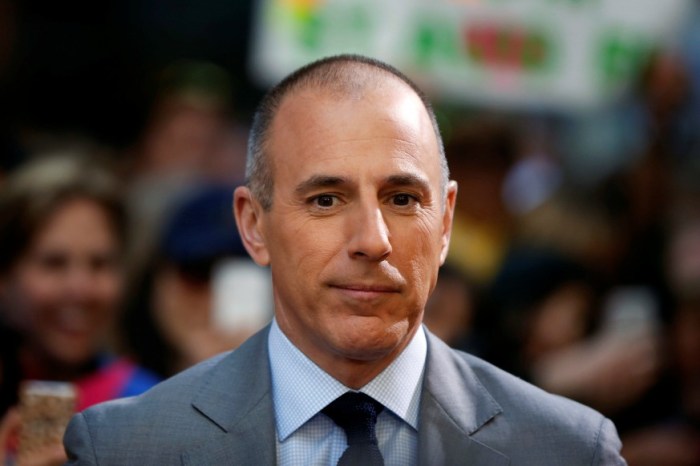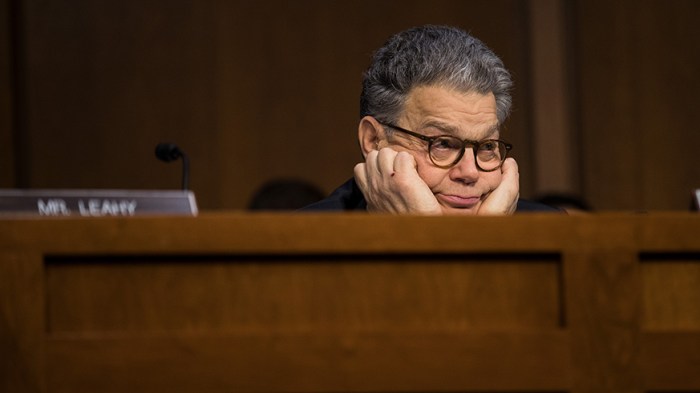Last week, three male congressmen resigned after sexual misconduct allegations against them caused major controversy: Sen. Al Franken (D-Minn.) and Reps. John Conyers (D-Mich.) and Trent Franks (R-Ariz.).
During a private Democratic Caucus meeting to discuss these recent events on Wednesday, Rep. Marcy Kaptur (D-Ohio) told colleagues that women’s clothing can be an “invitation” for sexual harassment, according to sources present at that meeting.
They told Politico that Kaptur, 71, said the following: “I saw a member yesterday with her cleavage so deep it was down to the floor. And what I’ve seen…it’s really an invitation.”
“Nearly everyone in the room’s mouths were wide open aghast,” a source claimed.
Kaptur, who is the longest serving member of the Ohio delegation, allegedly continued on to say that her female colleagues should adopt a more conservative dress code. Under the longstanding rules in the past, women on Capitol Hill have had to cover their shoulders and were prohibited from wearing open-toed shoes. In July, Speaker Paul Ryan said he would work with House officers to “ensure the enforcement of appropriate business attire is updated.”
Is there a theme here?
In response to the Harvey Weinstein allegations back in October, 82-year-old Congresswoman Eddie Bernice Johnson (D-Texas) said a similar statement in an interview, Newsweek reported. “I grew up in a time when it was as much the woman’s responsibility as it was a man’s — how you were dressed, what your behavior was.”
Johnson continued, “I’m from the old school that you can have behaviors that appear to be inviting. It can be interpreted as such. That’s the responsibility, I think, of the female. I think that males have a responsibility to be professional themselves…[but] I think we also need to start talking about the power that women have to control the situation.”
In late November, 92-year-old actress Angela Lansbury said in an interview with Radio Times that women must sometimes take the blame for harassment they face. “Although it’s awful to say, we can’t make ourselves look as attractive as possible without being knocked down and raped,” she stated. “There are two sides to this coin. We have to own up to the fact that women, since time immemorial, have gone out of their way to make themselves attractive. And unfortunately it has backfired on us.”
While it can be argued that, perhaps, older women are more likely to equate harassment with inappropriate dress due to more conservative beliefs, Jessica Wolfendale, an associate professor of Philosophy at West Virginia University, told Metro that this isn’t necessarily the case.
She cited a 2012 survey prepared for the Vermont Governor’s Prevention of Domestic and Sexual Violence Task Force in which 60 percent of respondents aged 18 to 24 agreed with the statement “women who wear tight or revealing clothing are inviting sexual comments or advances.” In that same survey, the same percentage of respondents aged 65 or older — 60 percent — also agreed with the statement.
The bigger issue
Congresswoman Kaptur spoke with the press on Wednesday to address the comments she made during the private meeting. “When I was first elected to Congress, my office and I became a refuge for female staffers who had been mistreated by their bosses,” she said. “Some of them in tears many days. It is something I carry with me to this day and something I brought up during our Caucus meeting.”
“Under no circumstances is it the victim’s fault if they are harassed in any way,” Kaptur continued. “I shared the stories from my time here in the context of the ‘Me Too’ legislation and how we can elevate the decorum and the dress code to protect women from what is a pervasive problem here and in society at large.”
Despite the fact that Kaptur claims she is not blaming females in any sense, she’s taking the responsibility off of men’s shoulders and placing it onto theirs.
“The narrative of the provocatively dressed woman tells us that women are responsible for men’s sexual behavior,” Professor Wolfendale wrote in an essay entitled, “Provocative Dress and Sexual Responsibility.”
“This narrative also reflects and reinforces the belief that women who wear revealing clothing want sexual attention from all men, not just from men they are attracted to or from whom they would like sexual attention,” she continued. “Thus, [it] implies that men who sexually harass or assault women aren’t fully to blame for their behavior because women who wear revealing clothing are ‘asking for it.'”
Wolfendale told Metro that she thinks the problem is that women “face a double-bind when it comes to dress. Like men, women want to be seen as attractive and sometimes want to dress and feel sexy. But, for women, dressing in a stereotypical sexy way does bring with it the risk of unwanted sexual attention and harassment because, in our society, some men do interpret women’s clothing as saying ‘yes’ even if they say ‘no.'”
Wolfendale cited a study featured in the Journal of International Women’s Studies. Of those surveyed, only 3.2 percent of women stated that their intention in wearing revealing clothing was “to arouse men,” while 30.6 percent of men believed that women who wore revealing clothing “always intended” to arouse them and 53.2 percent believed that such women intended to arouse them “most of the time.” 55.6 percent said that, most of the time, they believed women who wore revealing clothing intended to “elicit sexual advances.”
Metro asks around
“Based on when people have catcalled me, it really was never based on what I was wearing,” one woman told Metro, admitting that sometimes she will think about what she’s wearing depending on where she’s going. And if she’s going somewhere alone, she said she might wear “something less revealing.”
A second said that she believes what she’s wearing can play into sexual harassment, though men have commented on her appearance or “stared inappropriately” even when she felt she was dressed appropriately. She admitted that she does think about the reactions she’ll get, but said it doesn’t deter her from wearing certain outfits “because I think I should be able to wear what I want.”
Another woman said she “definitely” perceives sexual harassment as more of a threat if she’s wearing, say, something that shows leg. “It didn’t used to affect my outfit choices until I was recently told upon arguing with a man who was shouting nasty things at me that, with short shorts like the ones I was wearing, ‘I was asking for it.'”
One woman contended that, generally speaking, “it doesn’t matter what you’re wearing. You get sexually harassed if you’re a woman.”
What’s next?
Kaptur’s comments on Wednesday prove that though we may not intend to blame victims, we may very well be doing so.
“Rather than worrying about new dress codes,” Wolfendale concluded to Metro, “we should be doing more to challenge and change these underlying beliefs that shape and constrain women’s freedom.”
This year alone has showcased just how resilient much of the world is to demolish sexist beliefs encompassing rape culture. Instead of “she asked for it,” people collectively demand, “she didn’t.”


















